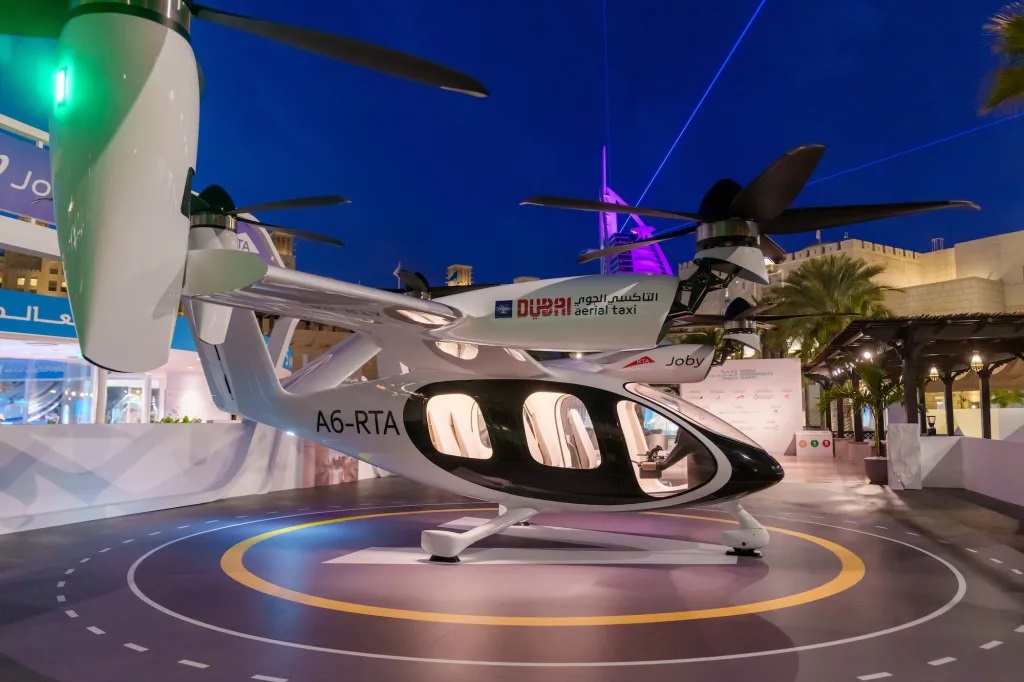
This week witnessed a flurry of activity in the EV industry, with notable updates from key players. Joby Aviation’s agreement with Dubai regulators marks a pivotal step towards urban air mobility. However, Fisker’s troubles highlight the importance of quality control and customer satisfaction in the EV market. River’s funding round underscores the growing demand for zero-emission vehicles in markets like India. Meanwhile, Waymo’s regulatory challenges underscore the complexities of deploying autonomous vehicles. Ford’s EV Skunkworks project and Uber’s profit milestone exemplify the industry’s resilience and adaptability amidst evolving market dynamics. As stakeholders navigate these developments, the future of electric mobility promises to be electrifying yet uncertain.
In a whirlwind of developments this week, the electric vehicle (EV) industry witnessed significant milestones, as well as some setbacks. Rivian set the stage for its next-gen EV reveal, while Waymo faced challenges with its robotaxi service. Arrival sought to sell off assets, while startups like Cake and River made waves with funding rounds. Amidst this flurry of activity, Ford quietly pursued its EV ambitions, while Fisker encountered troubles. Let’s delve into the highlights of this eventful week in the EV landscape.
Late-breaking News: Joby Aviation, a company specializing in all-electric aircraft for commercial passenger service, struck a deal with Dubai regulators to launch air taxi services by early 2026. This agreement, which grants Joby exclusive air taxi rights in Dubai for six years, marks a significant step towards the future of urban air mobility.
Fisker’s Troubles: Troubling reports emerged about Fisker, the EV startup that went public in 2020. Numerous customers reported issues with Fisker Ocean SUVs, including loss of power incidents, braking failures, and malfunctioning key fobs. The company also faced criticism regarding its service department, leading to the departure of its global service director. These revelations raise concerns about Fisker’s quality control and customer satisfaction efforts.
Deal of the Week: River, a startup capitalizing on India’s growing demand for zero-emission vehicles, secured $40 million in a Series B funding round led by Yamaha Motor. River aims to capture the Indian market with its utility-focused “SUV” two-wheeler, Indie, amidst increasing competition in the EV sector.
Other Notable Deals: Elroy Air, a startup developing autonomous cargo drones, raised $48.9 million, while Guided Energy received $5.2 million for its EV fleet management software. Oto, a financing software platform for two-wheeled EVs, secured $10 million in funding. Additionally, delivery robotics startup Starship Technologies raised $90 million, highlighting the continued investor interest in EV and robotics technologies.
Autonomous Vehicles: Waymo faced regulatory scrutiny after one of its robotaxis collided with a cyclist in San Francisco. The incident sparked investigations by the California DMV and Public Utilities Commission, underscoring the challenges of deploying autonomous vehicles in urban environments.
Electric Vehicles and Charging Infrastructure: Arrival’s UK division entered administration, signaling financial difficulties for the EV manufacturer. Electric motorcycle company Cake engaged in talks with Harley-Davidson and other automakers as it sought partnerships to sustain its operations. Cowboy introduced an on-demand service program for e-bike maintenance, reflecting a growing focus on customer support in the EV industry. Ford’s secretive EV skunkworks project, led by former Tesla executives, aims to develop low-cost EVs, leveraging expertise from its acquisition of Auto Motive Power.
Uber’s Profit Milestone: In a significant achievement, Uber reported a full-year profit driven by operating income, marking a turning point for the ride-hailing and delivery app. This milestone underscores Uber’s resilience and adaptability in navigating the challenges of the gig economy landscape.
Looking Ahead, as the EV industry continues to evolve rapidly, with announcements from Rivian, Toyota, and Lyft on the horizon, stakeholders must navigate a dynamic landscape characterized by innovation, competition, and regulatory scrutiny.
As the EV industry continues to evolve, stakeholders must embrace innovation while addressing challenges to drive sustainable growth. Despite setbacks faced by companies like Fisker, the sector’s momentum remains strong, fueled by investments, technological advancements, and shifting consumer preferences. Rivian’s upcoming reveal and Toyota’s expansion into electric SUVs signal ongoing innovation and competition within the market. With Lyft’s earnings announcement on the horizon, industry players are closely monitoring developments to anticipate future trends. In this dynamic landscape, collaboration, regulatory compliance, and customer-centric strategies will be crucial in shaping the future of electric mobility.

